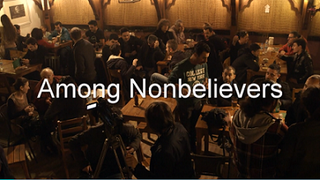 W
WAlevism or Anatolian Alevism is a local Islamic tradition, whose adherents follow the mystical Alevi Islamic (bāṭenī) teachings of Haji Bektash Veli, who is supposed to have taught the teachings of Ali and the Twelve Imams. Differing from Sunnism and other Twelver Shia, Alevis have no binding religious dogmas, and teachings are passed on by a spiritual leader. They acknowledge the six articles of faith of Islam, but may differ regarding their interpretation. Adherents of Alevism are found primarily in Turkey and make up approximately 10% to 15% of the population in Turkey.
 W
WIslam is the largest religion in Turkey according to the state, with 99.9% of the population being initially registered by the state as Muslim, for anyone whose parents are not of any other officially recognised religion and the remaining 0.1% are Christians or adherents of other officially recognised religions like Judaism. Due to the nature of this method, the official number of Muslims include people with no religion; converted people and anyone who is of a different religion from their Muslim parents, but has not applied for a change of their individual records. The records can be changed or even blanked on the request of citizen, by filing an e-government application since May 2020, using a valid electronic signature to sign the electronic application. Any change in religion records additionally results in a new ID card being issued. Any change in religion record also leaves a permanent trail in the census record, however, record of change of religion is not accessible except for the citizen in question, next-of-kin of the citizen in question, the citizenship administration and courts.
 W
WAmong Nonbelievers is a 2015 bilingual English–Dutch documentary on the situation of endangered nonbelievers, especially ex-Muslims, around the world. Set in the United Kingdom, Turkey, the Netherlands and Switzerland, the film is directed by Dorothée Forma and produced by HUMAN with the support of the Dutch Humanist Association. In 2016, it was succeeded by Non-believers: Freethinkers on the Run, which dealt with the fate of apostates and freethinkers in Dutch refugee camps.
 W
WThe Dönmeh were a group of Sabbatean crypto-Jews in the Ottoman Empire who converted outwardly to Islam, but retained their Jewish faith and Kabbalistic beliefs in secret. The movement was centered mainly in Thessaloniki. The group originated during and soon after the era of Sabbatai Zevi, a 17th-century Sephardic Jewish Rabbi and Kabbalist who claimed to be the Jewish Messiah and eventually feigned conversion to Islam under threat of death penalty by the sultan Mehmed IV. After Zevi's forced conversion to Islam, a number of Sabbatean Jews also falsely converted to Islam and became the Dönmeh. Part of the Sabbateans lived on until well into 21st-century Turkey as descendants of the Dönmeh.
 W
WTurkey is a secular state in accordance with Article 24 of its constitution. Secularism in Turkey derives from Mustafa Kemal Atatürk's Six Arrows: republicanism, populism, laïcité, reformism, nationalism and statism. The Turkish government imposes some restrictions on Muslims and other religious groups, as well as Muslim religious expression in government offices and state-run institutions, including universities.
 W
WSecularism in Turkey defines the relationship between religion and state in the country of Turkey. Secularism was first introduced with the 1928 amendment of the Constitution of 1924, which removed the provision declaring that the "Religion of the State is Islam", and with the later reforms of Turkey's first president Mustafa Kemal Atatürk, which set the administrative and political requirements to create a modern, democratic, secular state, aligned with Kemalism.
 W
WYazidism or Sharfadin is a monotheistic ethnic religion that has roots in a western Iranic pre-Zoroastrian religion directly derived from the Indo-Iranian tradition, although other, less common and more outdated narratives link the religion to Zoroastrianism and even Ancient Mesopotamian religions. Yezidism is followed by the mainly Kurmanji-speaking Yazidis and is based on belief in one God who created the world and entrusted it into the care of seven Holy Beings, known as Angels. Preeminent among these Angels is Tawûsê Melek, who is the leader of the Angels and who has authority over the world.